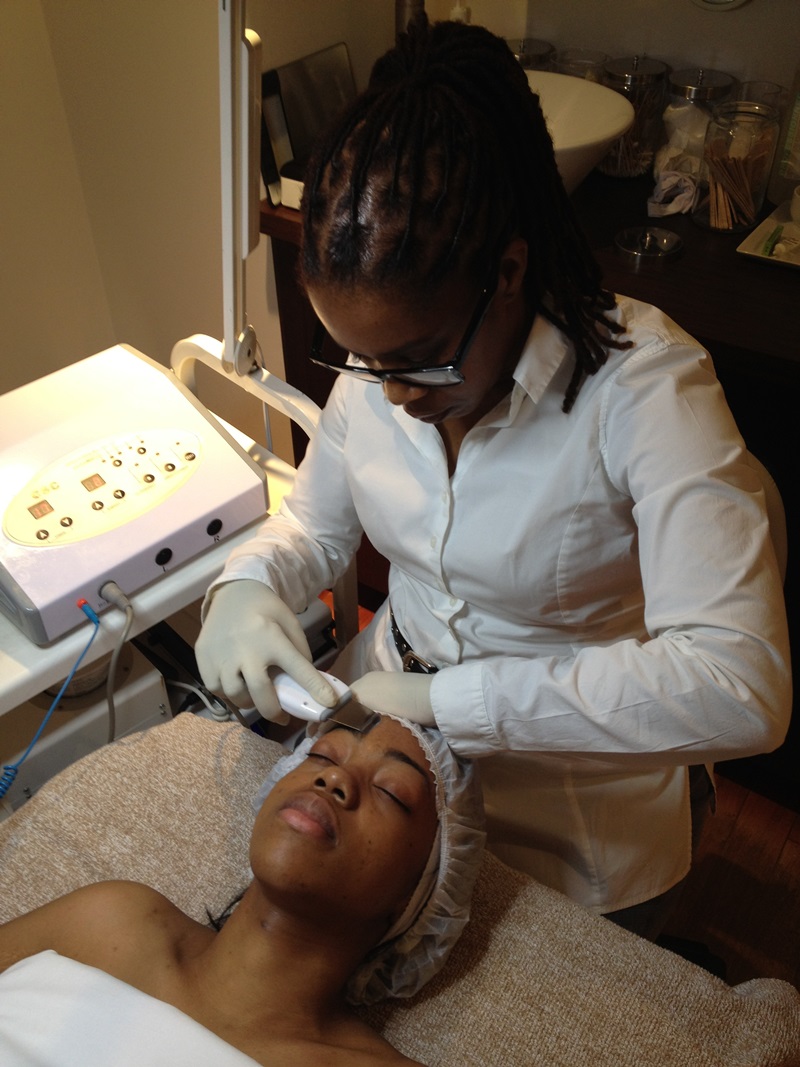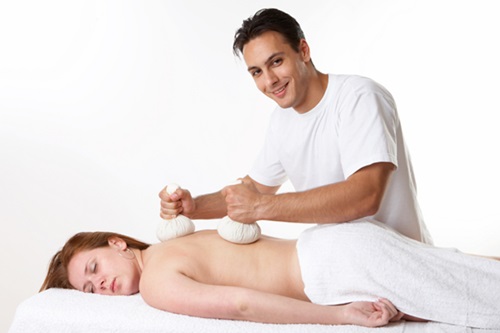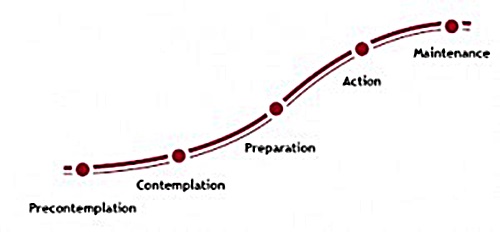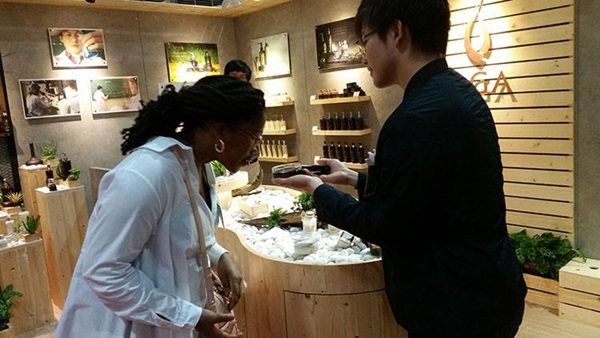
Years ago when I worked as an esthetician, every Thanksgiving Day I would hear “I can’t believe you have to work tomorrow” from well-meaning family and friends. Read More


Years ago when I worked as an esthetician, every Thanksgiving Day I would hear “I can’t believe you have to work tomorrow” from well-meaning family and friends. Read More

Innovation is a hot buzzword. Senior executives in the hospitality industry are burning the midnight oil trying to find ways to innovatively one-up each other. Flying yoga, wellness strategies, sustainability campaigns, the list goes on with one thing in common. They’re all designed to target a larger portion of revenue from the upscale leisure consumer. Read More
Certain customer service industries where one on one interaction is the norm disproportionately attracts introverts. Included in these would be the salon, spa, beauty and wellness. Unfortunately, however, training around the skill set of selling has not been modified to the way introverts learn.
If it seems counter-intuitive to think that introverts make the best salespeople this info-graphic might make you think again.

All introverts- what gets in the way of selling? We know that presenting in public is the greatest fear after death. Whether you are an entrepreneur, sales associate in the luxury sector or anything in between, let’s get your mind right so success will follow. Also this Blab contains a great time limited offer for the month of March.
Tune into our next Blab for the Global Spa Industry-Can Introverts Sell?
Friday, March 11 7:30 p.m.-8:pm. Bangkok time | 7:30 a.m.-8:00 am East Coast
12:30 pm London | 11:30 pm Sidney,Au.| 2:30 pm South Africa |4:30 pm UAE
Subscribe to get all of our Blab updates.

I’ve had my ear to the ground of the massage industry lately. Retail product selling is generating a lot of conversation…
According to David Kent LMT, NCTMB, every day we have a limited amount of time, physical strength and mental energy to earn a living. When we are at work, we are basically trading time for money. The amount we earn is influenced, to a certain degree, by our education, experience, skill level, track record, etc.
When we trade out time for money, we are only able to earn as much money as we are willing to trade our time. So, how else can we earn more money without working more hours? The answer is to retail, which is the sale of goods to the public.
(Yes, I know that you don’t want to “sell”. But you’re really not. Keep reading.)
People want to know why they hurt, how you can help and what they can do for themselves. Like other healthcare providers, we must educate the public and present solutions.
When we explain the benefits of receiving regular massage therapy sessions, we are, on a certain level, “selling” or “retailing.” When we offer a discounted price for a group of sessions, it might be labeled a “Special,” “Package” or “Membership.” Ultimately, we provide the benefits and the consumer makes an educated decision.
So, what products do massage therapists frequently integrate into their sessions that would benefit clients and could be offered for sale? The list includes topical analgesics, aromatherapy, pillows, music, scrubs, hot and cold packs, to name a few.
(I’d love it if my therapist recommended these to me. Wouldn’t you?)
Be creative and let your clients know you are proudly offering quality items for their personal use. During a regular session, let clients experience the benefits of new products at no additional charge. Ask clients to share samples with friends, family and coworkers. Topical analgesics and aromatherapy are great gift ideas for those living with pain and stress.
You know the treatment techniques and products that will help your clients the most. Education is the fundamental principle that must be applied to your therapy and the other products you sell. It is easy to earn additional income without working more hours by promoting the products you are already using and the repeat business continually adds to the bottom line.
(I would begin by checking out what’s on the shelves at your spa. I’d bet there are at least three products that you can tie in to your massage services. Speak with your manager about your sales commission rates and set daily or weekly goals for yourself as incentive. Good luck.)

I think that for most of us, (especially introverts) it takes a moment for any type of spa training to sink in. We need to mull it over and process it. Any questions that we have may not even formulate until we apply the process; do some hands on. But by then the trainer or consultant is long gone. Read More

For the past several years there has been an ongoing conversation about the difficulty of getting spa therapists to sell retail products. Most spa experts agree its important.. I gathered feedback from three industry insiders who shared their thoughts in recent publications.
Why does the word “selling” get such a negative response?
Nina Curtis, Founder and President of the Nile Institute weighed in this way. “Mainly because no one really wants to talk about it in the spa world where we believe it is only our position to make people feel good, well at least when it comes from the therapist’s mouth.”
Ouch. I totally agree and I’ve been saying similar things. It’s really critical. Remember when I said I taught myself to sell on the job? Seems Nina had the same experience. She says..
“I had this thought at one time as a therapist but only because during my basic cosmetology training no one presented sales as a part of my soon to be career. The same was true of my massage training. Nowhere during my training did any of my instructors present the importance of product selling in one of their lessons.”
Everyone in the company has a role to play in successful retailing and increasing revenue.
Industry veteran Lisa Starr knows this better than most. According to her, “Spas know that retailing is an important component of revenue generation, and yet many still struggle to reach hoped-for results. Who’s responsible for driving retail sales in your spa? Management? Therapists? Support Staff? Product Companies? It’s actually all of the above.
As with many initiatives, effective retailing starts at the top. The most impactful action management can take is to be purposeful in hiring and training staff who can create rapport with guests, and in creating compensation and advancement plans for therapists which include retailing benchmarks as part of the career path.
Without a doubt, therapists play the biggest role in retailing to spa guests. As the uniformed experts, their artfully presented home care suggestions, in tandem with their one-on-one interaction with the guest, will be the biggest driver of sales activity. Making home care recommendations MUST be part of every treatment on the spa menu.”
Lisa Starr– Spa Consultant, Management Educator, and Journalist
In Designed to Sell: Integrating Retail into Your New Spa Peggy Wynn Borgman talks about the importance of adding home care presentations to client workflow. She writes, “Our consultancy conducted a survey of spa shoppers that showed 93% of the spa client’s decision to buy home care was based on the recommendation of their spa technician or therapist.”
In the absence of recommendation, guests will buy familiar brands, sometimes refilling a product they’ve purchased in the past. This has led many spas to conclude that brands, not employees, are the most powerful source of sales. This simply isn’t true.
Massage therapists who post 10% of their total revenue in retail are top performers. Nail technicians and hair stylists who attain 15% retail ratio are stars. For estheticians, this number rises to 35-40% in the Stay Spa setting. But none of these employees have a chance to attain such numbers if they can’t easily make home care presentations to their clients as part of normal workflow. Most Stay Spas unwittingly make retail sales a challenge for even the most motivated employee.”
As you can see retail selling is spa has broad impact. But I feel it’s time for more spas to move beyond conversation and begin implementing. There is a culture shift that needs to happen. And if you’re not aware that this change is underway your spa is out of touch.
In my own experience, therapists who make on-point product recommendations raise the level of customer experience dramatically. This is why I focus on introverts and helping them use their natural listening skills. It shows that they are listening closely. It proves that they care enough about their guest to try and improve their well-being. This will keep your customers coming back.
So how do you do feel about spa retail training?

 Harper’s Bazaar just released their list of THE ’90S FILMS THAT EVERY FASHION GIRL SHOULD WATCH.
Harper’s Bazaar just released their list of THE ’90S FILMS THAT EVERY FASHION GIRL SHOULD WATCH.
Now, I’ll admit that I’m not a “fashion person” per se, most of my free time is devoted to creating on-line training workshops for the spa industry. But as a beauty professional I’ve been influenced for my entire life by the cinema . Also because American cinema is not as readily available to me in Asia, I find that I now appreciate it more. Read More

Most therapists enter the spa industry with the idea of providing service, helping or healing. The problem with retail sales training is that more often than not, the service component is not emphasized.
The view that retail is a customer service component and not the cumbersome additional task many therapists see it as, is one that is shared by Lorna Macleod, spa manager at Ribby Hall Village in Lancashire. “I always say to the therapists, don’t look at retail as a negative, look at it as a positive.
If you went to the doctor with a sore throat and the doctor didn’t give you anything for it, you’d feel cheated and I think it’s the same with spas,” she says. “We need to give customers something to take home that enables them to continue the benefits they see and the great feeling they have when they’re in the spa. If we don’t do that then we, as therapists, are not doing our jobs properly, we’re not fulfilling the clients’ needs and concerns.”
The problem, Macleod continues, is that therapists are afraid of retailing. “All therapists are frightened of retail because they feel as if they’re asking something where they’ll get a no back and no-one likes rejection,” she says. Gill Morris, director of training and consultancy provider GMT Training, which offers courses in areas that include sales training for spa and beauty therapists, agrees.
“Therapists are frightened to death of selling and that’s because they don’t know how to do it,” she says. “Education for therapists focuses very much on treatment, so they actually don’t know how to sell and don’t feel comfortable with the process of selling. That’s because they haven’t been taught it and if you haven’t been taught something, you don’t know how to do it.”
While many spas offer retail bonuses and incentive these, Morris explains, will have no effect if the skills required to push sales are not there to begin with. And while brands may be excellent at providing product training, product knowledge alone is not sufficient
Excerpted from Professional Spa and Wellness June issue “Selling the Sales Pitch”

I’m a fan of Chef Gordon Ramsay. Not the wild uber critical persona he displays on his American show , Hell’s Kitchen, but the kinder, gentler mentor and advisor that he is on his British program- Ramsay’s Kitchen Nightmares.
I remember watching an episode about a restaurant owner who had 50 or more items on his menu. The restaurant was in a shambles and the chef was losing money like crazy because he had to stock the ingredients of all the dishes he offered. He had very few customers because his food didn’t taste good. He was trying to do too much. Read More